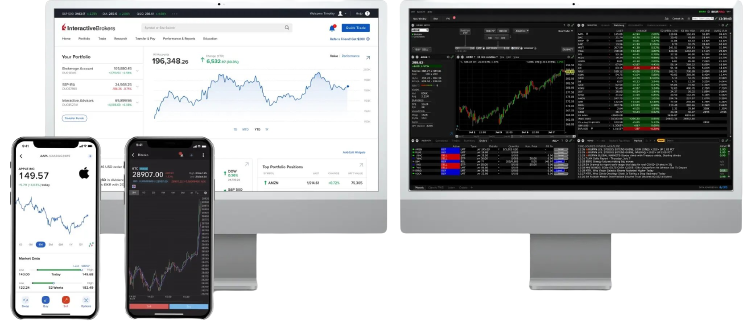- INTRODUCTION
The company is required to categorize Clients as either (a) Retail, (b) Professional
or (c) Eligible Counterparties.
- CATEGORIZATION CRITERIA
The criteria entailed for categorizing Clients based on the relevant provisions of the
Law are as follows:
A. Retail Client: is a Client, who is neither Professional nor Eligible
Counterparty,
B. Professional Client: is a client who possesses the experience, knowledge and
expertise to make his own investment decisions and properly assess the risks that he
incurs. Such Clients must fall under one of the following categories:
- Entities, which are required to be authorized or regulated to operate in the
financial
markets. The list below should be understood as including all authorized
entities
carrying out the characteristic activities of the entities mentioned: entities
authorized
by a member state under a European Community Directive, entities authorized or
regulated by a member state without reference to such Directive, and entities
authorized or regulated by a non‐Member State:
- Credit institutions
- IFs
- Other authorized or regulated financial institutions
- Insurance undertakings
- Collective investment schemes and management companies of such schemes
- Pension funds and management companies of such funds
- Commodity and commodity derivatives dealers
- Locals, and
- Other institutional investors.
- Large undertakings meeting two of the following size requirements, on a
proportional basis:
- Balance sheet total at least €20,000,000 EUR,
- Net turnover at least €40,000,000 EUR, and
- Own funds at least 2,000,000 EUR.
- National and regional governments, public bodies that manage public debt,
central
banks, international and supranational institutions such as the World Bank, the
Internal Monetary Fund, the European Central Bank, the European Investment Bank
and other similar international organizations.
-
Other institutional investors whose main activity is to invest in financial
instruments,
including entities dedicated to the securitization of assets or other financing
transactions. Eligible Counterparties: are any of the following entities to
which a credit
institution or an investment firm provides the services of reception and
transmission of
orders on behalf of clients and/or execution of orders and/or dealing on own
account:
CIFs, other IFs, credit institutions, insurance undertakings, UCITS and their
management companies, pension funds and their management companies and other
financial institutions authorized by a member state or regulated under community
legislation or the national law of a member state, undertakings exempted from
the
application of the Law in accordance with paragraphs (k) and (l) of subsection
(2) of
section 3, national governments and their corresponding offices, including
public
bodies that deal with public debt, central banks and supranational
organisations.
- REQUEST FOR CHANGE OF CATEGORIZATION
Retail Clients can request to be categorized and treated as Professional Clients in which
case they will be afforded a lower level of protection. Professional Clients can request
to be categorized and treated as Retail Clients in which case they will be afforded a
higher level of protection. Eligible Counterparties can request to be categorized and
treated as either Retail or Professional Clients in which case they will be afforded a
higher level of protection. It is noted that the Company will assess specified
quantitative and qualitative criteria in accordance with the provisions of the Law and
the change of categorization will depend on its absolute discretion.
- PROCEDURE FOR CHANGE OF CATEGORIZATION
Clients other than those mentioned in section 2 (B) may request to be treated as
Professionals provided that at least two of the following criteria are satisfied:
- The client has carried out transactions, in significant size, on the relevant market at
an average frequency of 10 per quarter over the previous four quarters
- The size of the client’s financial instrument portfolio, defined as including cash
deposits and financial instruments exceeds €500,000 EUR
- The client works or has worked in the financial sector for at least one year in a
professional position, which requires knowledge of the transactions or services
envisaged.
The clients defined above may waive the benefit of the detailed rules of conduct only
where the following procedure is followed:
- They must state in writing to the Company that they wish to be treated as
professional clients, either generally or in respect of a particular investment service or
transaction, or type of transaction or product
- The Company must give them a clear written warning of the protections and investor
compensation rights they may lose
- They must state in writing, in a separate document from the contract, that they are
aware of the consequences of losing such protections.
Before deciding to accept any request for waiver, the Company must take all
reasonable steps to ensure that the client requesting to be treated as a professional
client meets the relevant requirements stated above. However, if Clients have already
been categorised as professionals under parameters and procedures similar to those
above, it is not intended that their relationships with the Company should be affected
by any new rules adopted pursuant to the Law.
- INFORMATION ON LEVEL OF PROTECTION
The additional protection afforded to a Retail Client compared to a Professional Client
or an Eligible Counterparty includes without limitation the following:
- Retail Clients are provided with more information regarding the Company’s fees,
charges, and expenses
- Retail Clients provide more information regarding their knowledge and experience in
the Investment field so as to enable the Company to assess whether the investment
service or product envisaged is appropriate for the Client
- The Company must take all reasonable steps to ensure that a Retail Client’s order is
executed as such in order to obtain best possible results
- A Retail Client will receive information regarding his executed order timely and with
more detail as to the content
- A Retail Client will be informed of the Company’s liability in relation to possible
solvency of the custodian where Clients’ financial instruments are held
- A Retail Client will be informed of the Company’s Conflict of Interest Policy
- A Retail Client will be informed of the Company’s complaint handling procedures.

